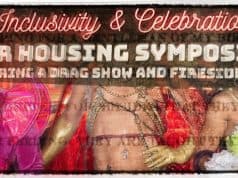The following letter, written by attorney Charles L. “Buddy” Weber, was sent to each member of the Virginia General Assembly and shared with The Schilling Show:
Dear Senator,
During the 2020 legislative session, the General Assembly will consider legislation to amend Virginia Code § 15.2-1812 by granting local governing bodies in Virginia the authority to remove war memorials. Advocates claim that the changes are necessary to permit local authorities the power to respond to the will of local voters. They are wrong.
The General Assembly should reject this legislation because it would break faith with every Virginian who ever served his country in time of war and cause lasting damage to other good faith efforts to improve race relations in Virginia.
Public Policy of Virginia
The Attorney General of Virginia addressed the long-standing public policy of Virginia in an opinion dated August 6, 2015,
“The importance of honoring all of our veterans, especially those who have given their lives and paid the ultimate sacrifice for us, our country and our freedoms, cannot be overstated. These brave men and women deserve our full support, and the General Assembly has chosen to extend certain protections to monuments honoring their service . . . Accordingly, it is my view that § 15.2-1812 applies to monuments commemorating certain wars and veterans of those wars, but not to monuments commemorating buildings.” 2015 Va. AG 120 (15-050)
Recognizing that war memorials promote historical dialogue and a deeper understanding of what it means to be an American, the General Assembly has wisely crafted a “do not disturb” statute to insulate war memorials from the transient political fevers of the day.
The heirs of former Confederate soldiers have proudly served their country, the United States of America, in war and peace. Honoring their ancestors and the generals who led them into battle was and is a national act of grace necessary for the reconciliation of the country.
War memorials, unlike other monuments or historical markers, are deemed to be hallowed ground, sacrosanct. They deserve permanence and need protection from the shifting tides of public opinion.
Local autonomy and the public will
Existing law empowers individual citizens to stop monument desecration by their own governing body. That’s as local and autonomous as it gets. All the proposed legislation does is strip local citizens of their power.
Moreover in the current environment, it is virtually impossible for any governing body to determine what the local will is.
Local activists are highly vocal but they derive their real power from labeling all who oppose their agenda as racists or white supremacists.
I know because, as a plaintiff in the lawsuit against the City of Charlottesville, I have been among those targeted.
One of the leading activists said that I and the other plaintiffs were “bow tie, upscale people, tied to the League of the South people who want to secede and are slavery apologists.”
For the record, I am not a native Virginian. My great, great grandfather fought for the Union army. I am a 27 year veteran of the U.S. Navy and flew over a hundred combat missions in Viet Nam. For the past 21 years, as an attorney, I have sought justice for each of over 2000 mostly indigent clients, regardless of color, accused of crimes before the courts of Virginia.
Thus, such feverish accusations by vocal activists are demonstrably false but nonetheless effective at chilling free speech thus frustrating anyone’s ability to discern the local will. The intestinal fortitude to withstand the onslaught of such libel should not be underestimated. In Charlottesville, the law served its purpose well.
Thomas Sowell said, “racism is not dead, but it is on life support — kept alive by politicians, race hustlers and people who get a sense of superiority by denouncing others as racists.” The activists in Charlottesville prove that Sowell was right.
Collateral consequences
Charlottesville is home to the oldest Viet Nam War memorial in the country. The name of a personal friend who was killed in April 1968 is engraved on that memorial. This memorial is as personal to me as the Civil War memorials are to those whose ancestors fought and died under the commands of Generals Lee and Jackson.
The proposed legislation, if passed, will encourage local, angry activists to petition for the expungement of this memorial from our public square on the grounds that the Viet Nam War was also motivated by racism. All those opposed will be labeled and intimidated.
Stripping these war memorials from the public square will not improve race relations or the lives of anyone in the community. Instead, doing so will simply break faith with military veterans everywhere and alienate many Virginians who understand our history and work constructively to promote justice in our communities.
Political discourse
Equally important, passage of the proposed legislation will empower local activists throughout the Commonwealth to pursue even more sinister and subversive ends.
Locally they have already begun to promote the “1619 Project,” a highly inaccurate and distorted narrative of American history.
Several of our political leaders, in conjunction with local social justice organizations, have espoused the view that free speech and civil political discourse are mere tools to promote white supremacy.
Such philosophies are antithetical to our entire system of government and should be resisted at every level and at every opportunity.
Conclusion
The existing monument protection law represents an expression of sound public policy that has served the Commonwealth well for more than a century. Changing the law as proposed could well have long term adverse consequences that have not yet been thoroughly vetted. I urge you to reject the changes and vote NO at every opportunity.
Signed,
Charles L. Weber, Jr.
Attorney and Counselor at Law
Attorney and Counselor at Law








